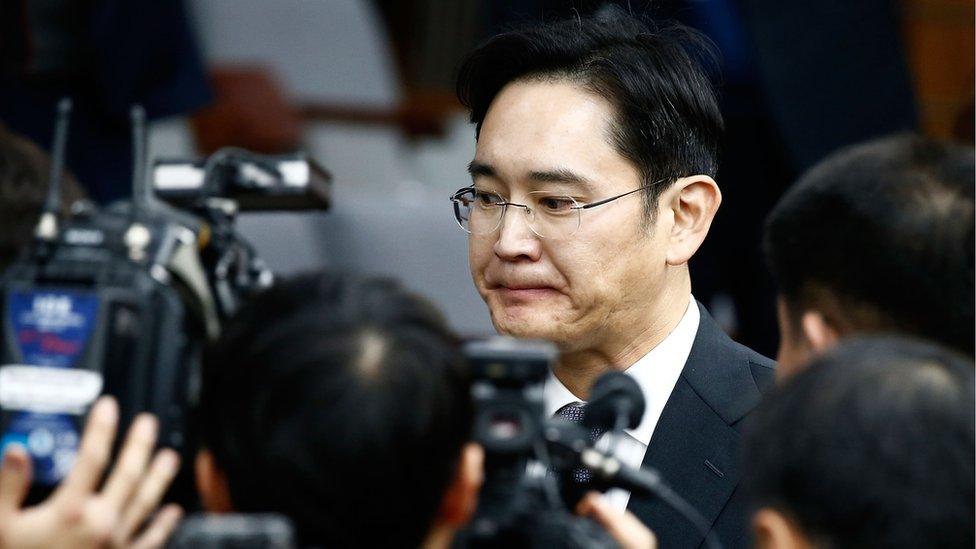Samsung boss Lee Jae-yong goes on trial in South Korea
- Published
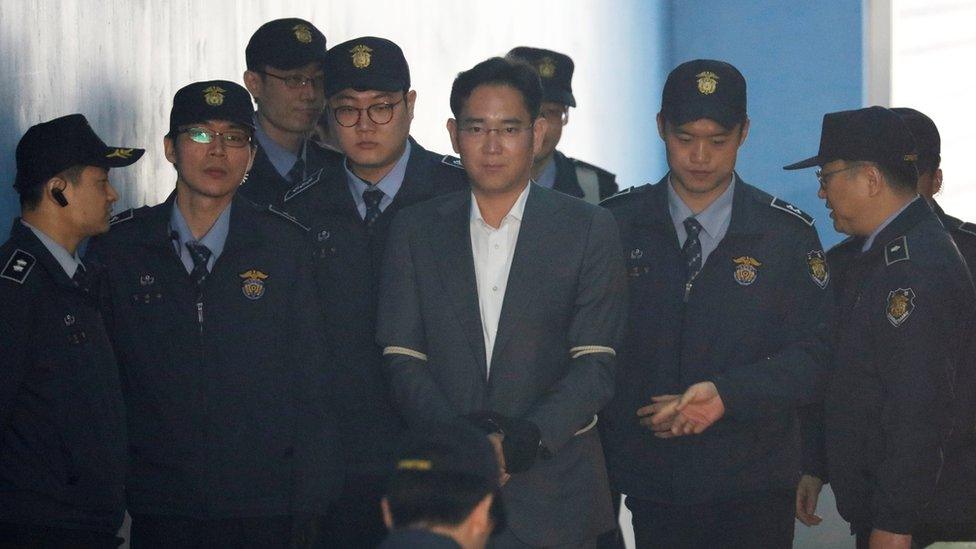
Mr Lee was brought to court in handcuffs
The acting head of Samsung Group has gone on trial in South Korea for his alleged role in a corruption scandal that led to the ousting of the president.
Lee Jae-yong denies charges of embezzlement and perjury.
Prosecutors say he gave 43bn Korean won ($38m; £30m) to President Park Guen-hye's friend for political favours.
Ms Park is suspected of colluding with Choi Soon-sil to get conglomerates to donate to Ms Choi's foundations.
Ms Park was arrested last week, after being impeached, and sent to a detention centre, although she has not yet been formally charged.
Mr Lee, who appeared in court in handcuffs, has denied the bribery allegations, saying Samsung was coerced into handing over the funds.
Another four Samsung executives have also appeared in court in connection with the scandal. They also deny the accusations.
Mr Lee's case is "one of the most deep-rooted and typical cases involving unhealthy relations between politicians and businessmen," said Special Prosecutor Park Young-Soo in his opening statement in Seoul's Central District Court.
Mr Lee, the 48-year-old vice-chairman of Samsung Electronics, has been the parent company Samsung Group's de facto head since his father Lee Kun-hee suffered a heart attack in 2014.
He was arrested in February.
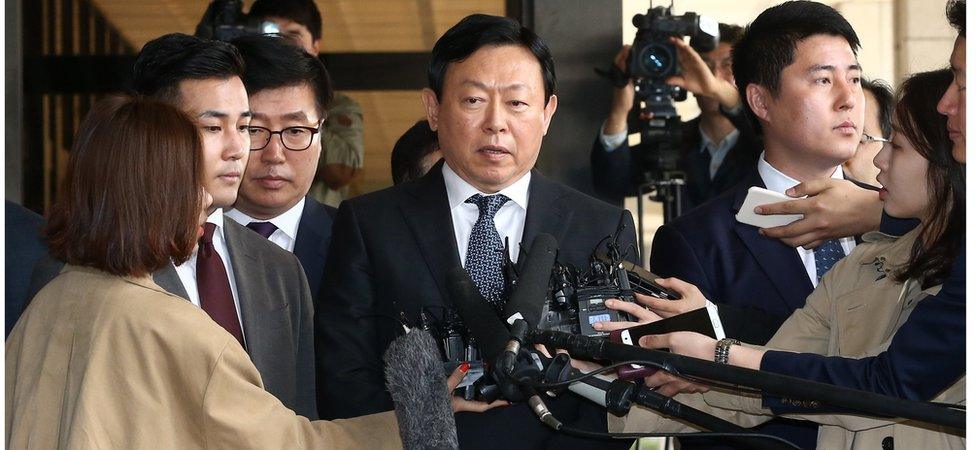
On the same day, Lotte's chairman was questioned over the scandal
On Friday, the chairman of the powerful Lotte conglomerate, Shin Dong-bin, was also being questioned by prosecutors in connection with the widening corruption probe.
They are investigating whether donations given by Lotte to foundations allegedly controlled by Ms Choi were bribes connected to the firm's bid for a lucrative duty-free business.

Analysis: Karishma Vaswani, Asia Business correspondent
There are hopes that whoever replaces Ms Park will push for real reform in the biggest conglomerates, known as chaebols. But how realistic are those reforms in a country where the top 10 chaebols own more than a quarter of all business assets?
Samsung's sales alone make up a fifth of South Korea's gross domestic product.
In the run-up to presidential elections in May, candidates have made chaebol reform a major pillar of their campaign promises.
But unpicking the complex and powerful hold these family-run firms have over the South Korean economy will take more than just rhetoric.

- Published7 April 2017
- Published5 February 2018
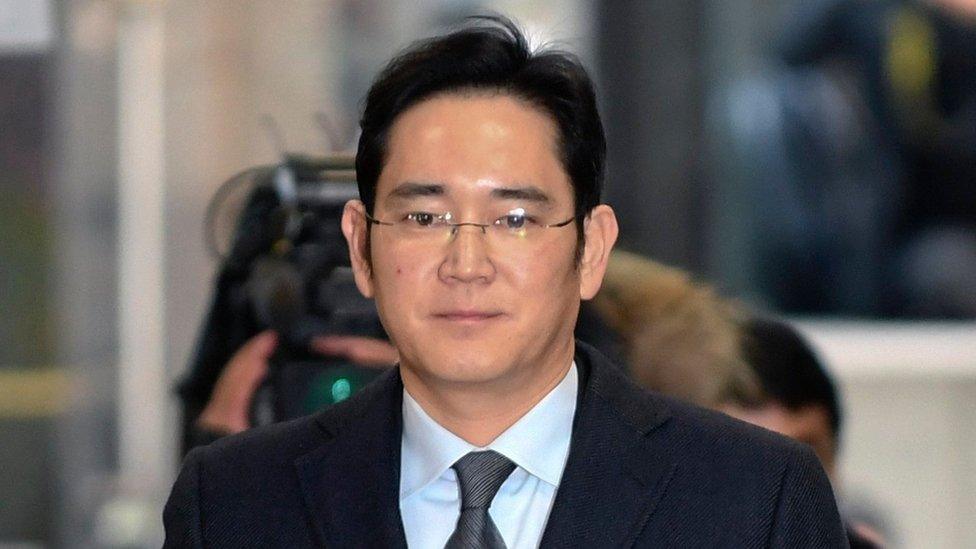
- Published6 April 2018
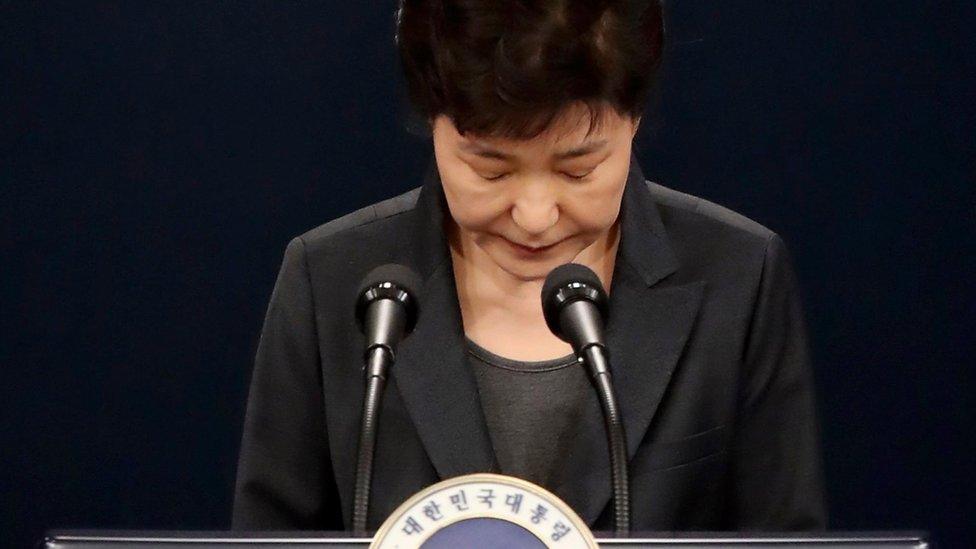
- Published30 March 2017
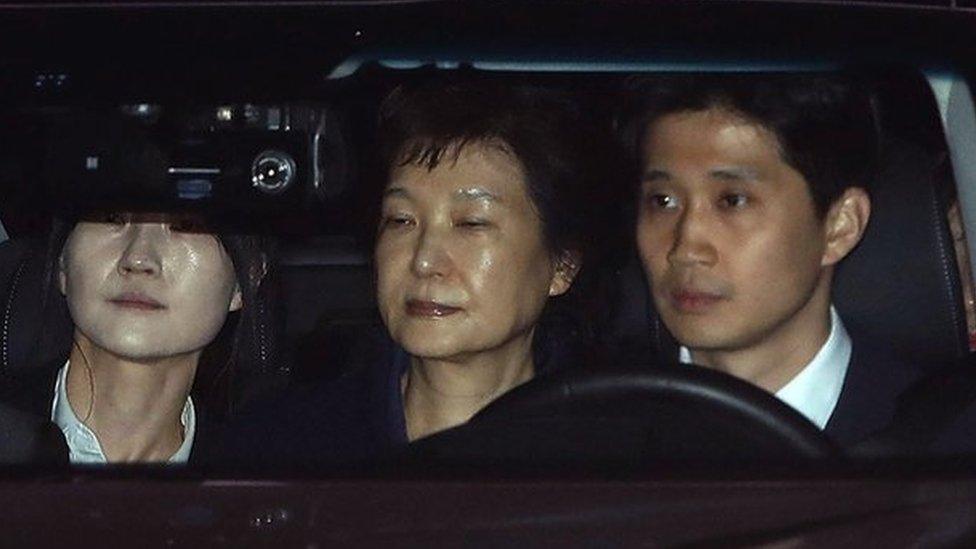
- Published9 March 2017
